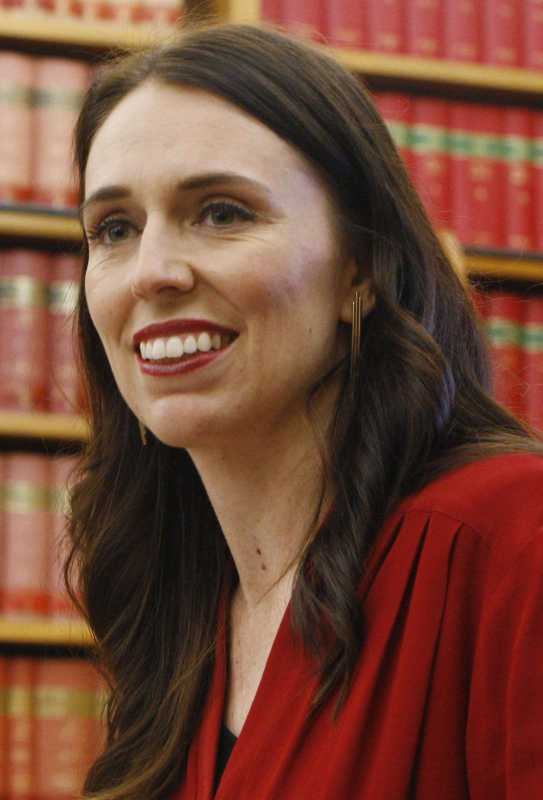People
Jacinda Ardern: An Inspirational Leader’s Journey

Introduction
Jacinda Ardern is a prominent political figure and the current Prime Minister of New Zealand. Born on July 26, 1980, in Hamilton, New Zealand, Ardern has emerged as a leader known for her empathetic approach, effective governance, and progressive policies. She rose to international fame for her compassionate response to the Christchurch mosque shootings in 2019, solidifying her reputation as a leader with a strong moral compass.
Table of Content
Click on the links below to navigate through the article:
- Leadership Style
- Political Career
- Achievements
- Social Policies
- Economic Policies
- International Impact
Jacinda Ardern’s Leadership Style
One of the defining aspects of Jacinda Ardern’s leadership is her empathetic and inclusive approach. Ardern believes in building strong connections with her fellow citizens, listening to their concerns, and taking decisive action to address them. Her leadership style is characterized by openness and transparency, fostering a sense of trust and unity among the people of New Zealand.
Political Career
Ardern’s political career began in earnest when she became a member of the New Zealand Labour Party at the age of 17. Over the years, she diligently worked her way up through various roles, including serving as the President of the International Union of Socialist Youth and working in the offices of former Prime Ministers Helen Clark and Phil Goff.
In 2017, Ardern became the leader of the Labour Party and subsequently led her party to victory in the general elections held that year. At the age of 37, she became the youngest-ever Prime Minister of New Zealand, breaking several barriers and inspiring young leaders across the globe.
Achievements
Ardern’s tenure as Prime Minister has been marked by several noteworthy achievements. She spearheaded the passage of the Zero Carbon Act, which aims to combat climate change and transition New Zealand to a carbon-neutral economy by 2050. Additionally, Ardern implemented significant gun control reforms in response to the Christchurch mosque shootings in 2019.
Under Ardern’s leadership, New Zealand has also made considerable strides in improving the overall well-being of its citizens. Her government introduced the Wellbeing Budget, which prioritizes addressing mental health issues, reducing child poverty, and promoting social inclusivity.
Social Policies
Ardern has championed a range of progressive social policies during her time as Prime Minister. She has been a vocal advocate for gender equality, implementing policies such as pay equity principles and increasing parental leave provisions. Her government has also taken significant steps to address homelessness and improve access to affordable housing.
Economic Policies
While Ardern’s focus on social issues is central to her agenda, she has also prioritized economic policies that promote sustainable growth and job creation. Her government has invested in infrastructure development projects, aimed at improving connectivity and boosting regional economies. Ardern has consistently emphasized the need for a fair and inclusive economy that benefits all New Zealanders.
International Impact
Jacinda Ardern’s impact extends beyond New Zealand’s borders. Her empathetic leadership during the Christchurch mosque shootings garnered international praise and showcased her ability to lead during times of crisis. Ardern’s focus on combating climate change has made her a respected voice on the global stage, advocating for stronger climate action and sustainable practices.
Frequently Asked Questions
- What is Jacinda Ardern’s background?
- What are Jacinda Ardern’s major achievements?
- What is Jacinda Ardern’s leadership style?
- How has Jacinda Ardern made an impact internationally?
Jacinda Ardern was born in Hamilton, New Zealand. She held various roles within the Labour Party before becoming the Prime Minister of New Zealand.
Ardern’s major achievements include passing the Zero Carbon Act, implementing significant gun control reforms, and introducing the Wellbeing Budget.
Ardern’s leadership style is characterized by empathy, inclusivity, and transparency.
Ardern’s response to the Christchurch mosque shootings and her advocacy for stronger climate action have garnered international recognition and respect.
Key Takeaway
Jacinda Ardern is a truly inspirational leader, known for her empathetic approach, effective governance, and progressive policies. From her inclusive leadership style to her accomplishments in social and economic policies, she has made a significant impact both domestically and internationally. Ardern’s ability to unite people and address pressing issues showcases her exceptional leadership. Her story serves as an inspiration for aspiring leaders around the world.
Table of Content
- Leadership Style
- Political Career
- Achievements
- Social Policies
- Economic Policies
- International Impact
Fact About Jacinda Ardern
- Jacinda Ardern was born on July 26, 1980, in Hamilton, New Zealand.
- She became the Prime Minister of New Zealand in 2017.
- Ardern introduced gun control reforms after the Christchurch mosque shootings in 2019.
- She is a strong advocate for gender equality and has implemented policies to address pay equity and parental leave.
- Ardern prioritizes climate change and aims to transition New Zealand to a carbon-neutral economy by 2050.












